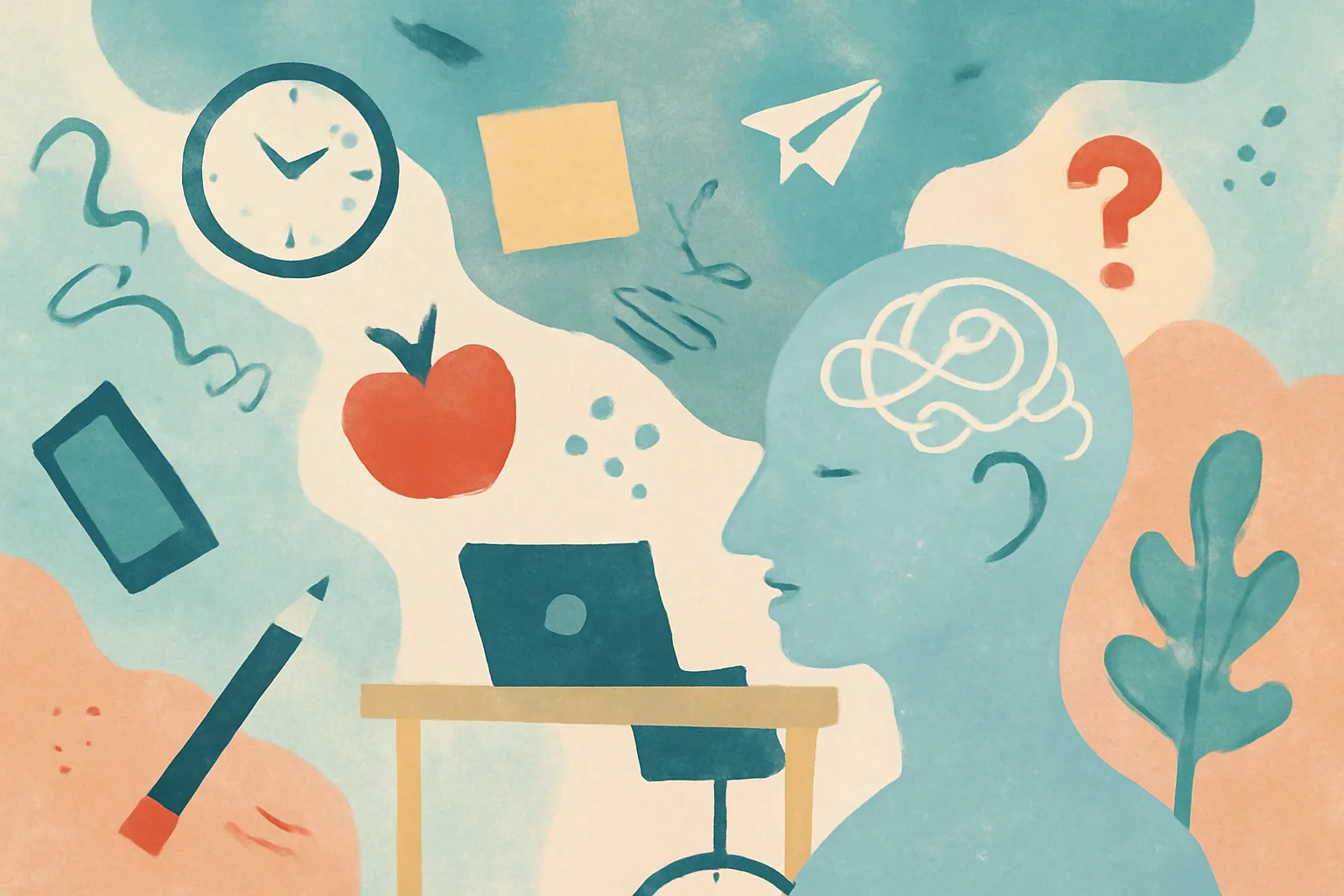
ADHD as an Adult: Challenges and Solutions in Daily Life
ADHD, or Attention Deficit Hyperactivity Disorder, is a neuropsychological condition that is not only a childhood issue but can also manifest in adults. ADHD in adulthood can present in various forms and can affect different areas of daily life, including work, social relationships, and personal development. In many cases, adults may not even realize they have ADHD, as their symptoms can easily be mistaken for other problems or may fade from focus due to the challenges of adulthood.
The diagnosis of adult ADHD is often delayed, as symptoms of inattention, impulsivity, and hyperactivity may differ from those experienced in childhood. For adults, problems often manifest more in difficulties with organization, workplace performance, or managing relationships. Additionally, many adults struggling with ADHD may also experience symptoms of anxiety, depression, or other mental disorders, which further complicates the situation.
The continuously expanding knowledge in the scientific community and changing social acceptance allows adults to increasingly recognize the problems they face and begin seeking solutions. Understanding, treating, and seeking appropriate support for ADHD in adulthood is crucial for achieving a quality life. Below, we will explore the characteristics, symptoms, and possible treatment options for adult ADHD in more detail.
The Symptoms of Adult ADHD
The symptoms of adult ADHD often differ from the signs observed in childhood. While hyperactivity and distraction dominate in children, adults may exhibit more pronounced symptoms of inattention and impulsivity. Adults often struggle to maintain focus, particularly on monotonous or boring tasks. This difficulty can also affect their workplace performance, making task completion significantly more challenging.
Impulsivity is also characteristic of adult ADHD. Impulsive behavior may manifest in making sudden decisions, which can lead to financial problems or relationship conflicts. Adults often do not realize that their behavior has consequences, which exacerbates the situation.
Moreover, adults frequently experience difficulties with organization and time management. Prioritizing tasks and meeting deadlines can be challenging for them, leading to stress and frustration. Those living with adult ADHD often feel that their life is spiraling out of control, which further increases anxiety levels.
Relationship problems are also common in the lives of those struggling with adult ADHD. Due to impulsive communication and inattention, they may find it difficult to maintain deeper connections, leading to feelings of loneliness and isolation. It is important to understand that ADHD is not a flaw in personality but a neurobiological condition that can be managed with appropriate support and treatment.
The Diagnosis of Adult ADHD
The diagnosis of adult ADHD is not always straightforward, as symptoms often overlap with other mental disorders or life situations. A thorough medical and psychological evaluation is necessary to establish a diagnosis, taking into account the patient’s history, the severity of symptoms, and their impact on daily life.
Doctors typically use questionnaires and interviews to arrive at an accurate diagnosis. For an ADHD diagnosis, it is essential that symptoms have been present for at least six months and that these issues significantly affect the individual’s quality of life. It is crucial to rule out other psychological conditions during the diagnosis, as adults often suffer from anxiety, depression, or other disorders whose symptoms may resemble ADHD.
After a diagnosis is established, various treatment options are available for adults. These include medication, psychotherapy, and various behavioral therapies. Medications, such as stimulants, can help manage attention deficit, while psychotherapy sessions address behavioral problems.
Although the diagnosis and treatment can be challenging, it is important for adults not to give up their search. Proper support and treatment can significantly improve quality of life and help adults become more successful in both their professional and personal lives.
Treatment and Treatment Options for ADHD
The treatment of adult ADHD can be multifaceted, and choosing the most appropriate solution depends on individual needs. The most common forms of treatment include medication therapy, psychotherapy, and behavioral therapy.
In medication therapy, professionals typically recommend stimulants, such as methylphenidate or amphetamines. These medications help increase attention and reduce impulsivity. It is important that medications are taken under medical supervision, as effects and potential side effects can vary from person to person.
Psychotherapy can also be an important part of treatment. Cognitive Behavioral Therapy (CBT) can help adults better understand and manage their symptoms. During therapy, patients learn to identify problematic thoughts and behaviors and how to transform them in a more positive direction. Therapy can also assist adults in stress management, improving their relationships, and coping with the challenges of daily life.
Behavioral therapies, such as social skills training, can also be beneficial. These programs aim to help adults learn to communicate and collaborate more effectively with others, which can improve relationships and enhance workplace performance.
Overall, the treatment of adult ADHD requires an individualized approach, and the best results can be achieved by combining different methods. It is important for adults to remain open to treatment options and actively seek support that can help them navigate daily life successfully.
**Note:** This article does not constitute medical advice. Always consult a physician for health-related issues!

